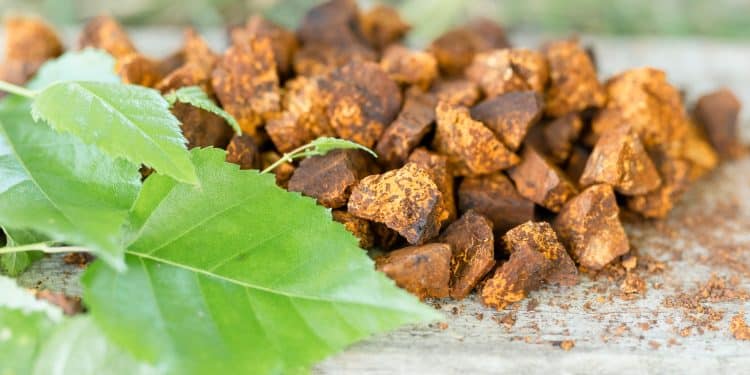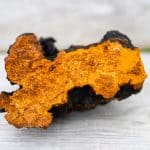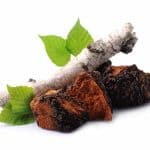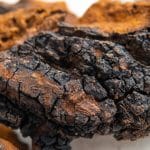As chaga is becoming more and more popular as a medicinal mushroom, many people that are new to using chaga mushroom often wonder, is chaga mushroom psychedelic or hallucinogenic? Thankfully the answer is no, is chaga mushroom psychedelic or hallucinogenic.
Chaga can help you feel more energized, as it is used widely as a substitute for coffee. You can checkout the video below from our friends at FreshCap for more info on this incredible mushroom.
Mushroom enthusiasts often explore various species for their unique properties and potential health benefits. Amidst this exploration, questions arise regarding the chaga mushroom’s effects on the mind, specifically if it possesses psychedelic qualities. This post delves into the nature of chaga mushrooms, examining scientific evidence to clarify whether they induce altered states of consciousness or merely contribute to wellness without psychoactive experiences. It aims to provide a clear understanding for those curious about incorporating chaga into their holistic practices.
Understanding Chaga Mushrooms and Their Uses
Chaga mushrooms are found on birch trees in cold climates. Mushroom enthusiasts seek them out for their health properties. These fungi have a distinct appearance, often resembling a clump of dirt rather than a typical mushroom. They favor the harsh conditions of Siberia, Northern Canada, Alaska, and some northern areas of the continental United States.
They are not used for culinary purposes like common mushrooms. Instead, they are ground into powders or steeped to make tea. This traditional use stems from a belief in chaga’s wellness benefits. People claim it boosts immunity and overall health. Potential benefits include:
- Antioxidant properties;
- Support for immune system;
- Reduction in inflammation.
Mushroom enthusiasts harvest chaga carefully to preserve the birch trees they grow on. Sustainability is key as overharvesting can harm ecosystems.
The Psychedelic Mushroom Misconception
Chaga mushrooms have gained attention for their health benefits. But some confuse them with psychedelic mushrooms due to their appearance. Unlike hallucinogenic mushrooms, Chaga does not contain psychoactive compounds like psilocybin. This is a crucial distinction. Psilocybin is responsible for the psychedelic experiences associated with certain mushrooms.
Mushroom enthusiasts understand that Chaga’s woody growths and dark color can be misleading. They know it’s important to identify mushrooms correctly before consumption or use in remedies. Although they may look similar, the effects of consuming Chaga are vastly different from those of hallucinogenic varieties. The misunderstanding might arise from incomplete knowledge or visual misidentification. It’s essential to educate oneself on the differences between these fungi types.
Enthusiasts recognize that while both types of mushrooms share ecological roles, their impacts on humans are not interchangeable. There has been no evidence suggesting that consuming Chaga leads to any form of hallucinogen-induced experience or altered state of consciousness.
People interested in natural remedies often turn to Chaga for its potential health advantages without fear of unintended mental effects. They appreciate this non-hallucinogenic alternative as part of a wellness routine rather than seeking psychedelic experiences.
Chemical Composition of Chaga Mushrooms
Chaga mushrooms are known for their bioactive compounds. These ingredients make the mushroom mix a powerful tool for wellness. They contain high levels of antioxidants and melanin, which give them their distinctive dark color. Antioxidants help protect cells from damage caused by free radicals. This is one reason why many seek out is chaga mushroom psychedelic.
The mushroom also boasts an impressive amount of beta-glucans. Are natural polysaccharides, recognized for supporting the immune system. Mushroom enthusiasts appreciate these glucans because they help maintain good health, especially during seasonal changes.
Another key component in chaga mushrooms is triterpenes. These compounds may provide anti-inflammatory benefits to those who consume them regularly as part of a balanced diet or supplement regimen.
-
Antioxidants: Protect against cellular damage;
-
Melanin: Contributes to the mushroom’s dark hue;
-
Beta-Glucans: Support immune function;
-
Triterpenes: Offer potential anti-inflammatory properties.
These elements combine to create a potent natural product that can be integrated into daily routines without psychedelic effects.
Chaga Mushrooms in Traditional and Modern Medicine
Have a rich history in Eastern European and Russian folk medicine. For centuries, they have been used to address various health concerns. Birch trees host these fungi, which are harvested for their medicinal qualities. People believed in the healing powers of chaga long before modern science began to explore its benefits.
Today’s research is uncovering promising attributes of chaga mushrooms. Studies suggest that they may possess anti-cancer properties due to their high antioxidant content. These antioxidants help combat cell damage and could play a role in cancer prevention. Mushroom enthusiasts often consume chaga as part of their wellness regimen because of these potential benefits:
-
Antioxidants: Chaga contains significant amounts;
-
Health Concerns: Traditionally used for various ailments;
-
Birch Trees: The natural source of chaga mushrooms.
In addition to anti-cancer research, scientists are investigating how chaga can manage inflammation and cholesterol levels. Its adaptogenic properties may help the body cope with stress by balancing physiological functions. This makes it a popular choice among superfoods for those looking to enhance overall well-being.
The mushroom’s impact on cholesterol also draws attention from researchers interested in heart health. By potentially lowering bad cholesterol levels, chaga might reduce the risk of cardiovascular diseases.
Mushroom enthusiasts appreciate not only the historical context but also the current studies that highlight new ways to use this traditional remedy.
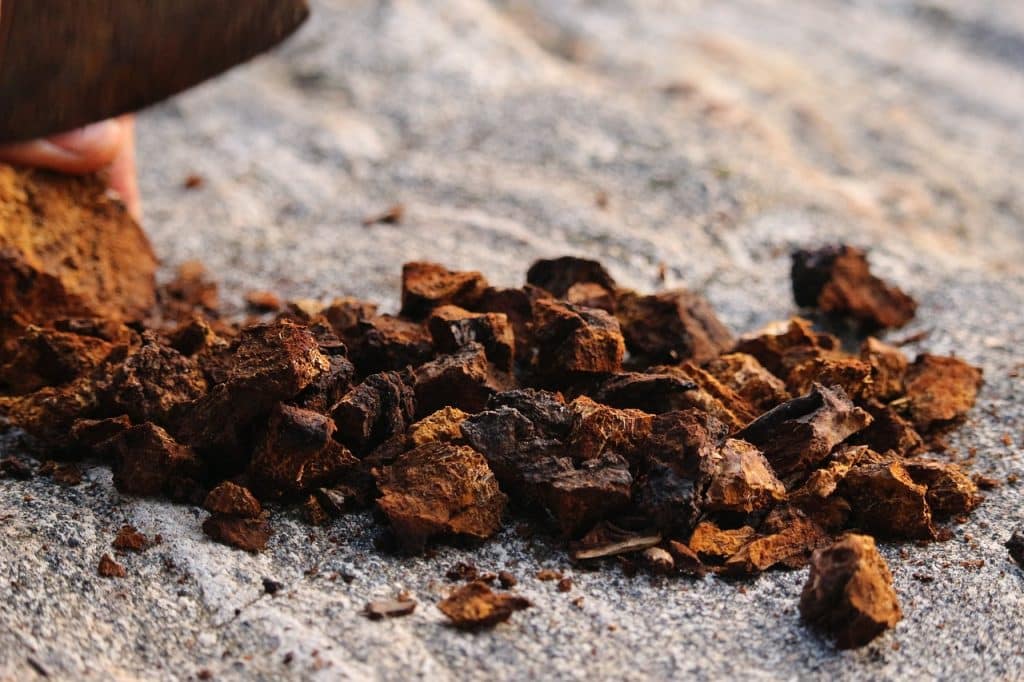
The Effects of is Chaga Mushroom Psychedelic on the Brain and Body
Chaga mushrooms have sparked interest for their potential health benefits. They may enhance cognitive function through their high antioxidant content. These antioxidants combat oxidative stress, which can damage cells in the brain. By protecting these cells, chaga could support better mental clarity and focus.
The immune system also benefits from chaga’s components. Unlike psychedelic substances that alter consciousness, is chaga mushroom psychedelic supports immunity without impacting the mind’s state. It contains compounds that might help maintain healthy immune function. This is crucial for overall wellness as a strong immune system protects against illness. Potential health benefits:
-
Improves cognitive function;
-
Supports immune system;
-
Does not alter consciousness.
Research suggests chaga may be an adaptogen, aiding the body in managing stress responses. Adaptogens are known to help balance bodily functions during stressful times. While studies continue, enthusiasts are hopeful about this mushroom’s ability to reduce stress without affecting mental clarity.
Legal Status and Safety of Chaga Mushroom Consumption
Chaga mushrooms are legally available in the United States. They hold a place on store shelves as dietary supplements. Many countries around the world also allow their sale. This makes it easy for enthusiasts to purchase them without legal concerns.
When consumed in moderate amounts, chaga is generally recognized as safe. This means most people can enjoy its benefits without worrying about safety issues. However, moderation is key here. Mushroom enthusiasts should be aware that like any supplement, individual reactions can vary. Therefore, consulting healthcare providers before starting regular use is wise.
Healthcare professionals can offer advice tailored to personal health conditions. They ensure that adding chaga to one’s routine will not cause harm or interact with medications.
Comparing Chaga to Known Psychedelic Substances
Chaga mushroom, unlike psychedelic substances such as LSD or psilocybin mushrooms, does not contain hallucinogenic compounds. Scientific evidence supports that the active components in Chaga are triterpenoids, which are known for their health benefits rather than mind-altering effects. Mushroom enthusiasts seeking altered states of consciousness will not find what they’re looking for with is chaga mushroom psychedelic. Instead, its use is grounded in potential wellness advantages.
The experiences reported by users of Chaga do not include visual or auditory hallucinations that one might associate with psychedelic drugs. There have been no credible reports linking it to any sort of psychedelic experience. Its popularity rests on claims about its antioxidant properties and immune system support—not recreational or spiritual uses.
Pros of using Chaga:
-
Rich in antioxidants;
-
May boost the immune system;
-
Lacks psychoactive effects.
Cons:
-
Not useful for those seeking a psychedelic experience;
-
Potential interactions with medication (as noted in previous sections).
Mushroom enthusiasts often turn to scientific studies when comparing substances like Chaga to psychedelics. They understand that while some mushrooms can induce profound changes in perception and thought, others offer different kinds of value—like promoting overall well-being without the risks associated with psychedelics.
How to Safely Incorporate Chaga into Your Diet
Mushroom enthusiasts may be intrigued by the health benefits of chaga mushrooms, but it’s crucial to start with small doses. This approach helps individuals gauge how their bodies react. Some might experience discomfort or allergic reactions. Therefore, beginning with a modest amount is wise before gradually increasing.
When adding chaga to one’s diet, sourcing from reputable suppliers is essential for ensuring purity and safety. Reliable vendors provide products that are free from contaminants and accurately labeled. Those interested in trying this mushroom should be aware of potential interactions with other substances they consume.
Chaga can affect blood clotting and insulin regulation. It may interact with medication like anticoagulants or insulin drugs. Consulting a healthcare provider before incorporating chaga into the diet is advisable, especially for those on medication or managing pre-existing conditions.
Closing Thoughts
Mushroom enthusiasts can rest assured that chaga mushrooms do not possess psychedelic properties, a fact underscored by scientific analysis of their chemical composition. This article has clarified the distinction between chaga and psychoactive fungi, emphasizing chaga’s role in traditional and modern medicine rather than in altering consciousness.
The legal status and safety profile of chaga consumption further dispel concerns, distinguishing it from controlled psychedelic substances. As research continues to reveal the health benefits and effects of chaga on the body, its incorporation into diets remains an interest for those seeking wellness through natural means.
They are encouraged to explore chaga’s potential with due diligence, ensuring responsible use that aligns with current guidelines and legal frameworks. For a deeper understanding of this non-psychedelic yet beneficial mushroom, further reading and consultation with healthcare professionals are advisable. By doing so, individuals can make informed decisions about integrating is chaga mushroom psychedelic into their health regimen.
Learn more:
